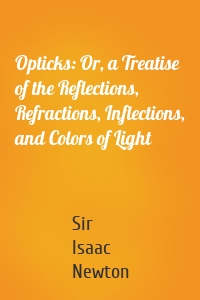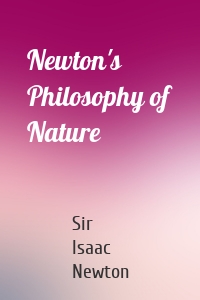Sir Isaac Newton
3 кн.
Opticks: Or, a Treatise of the Refl...
Sir Isaac Newton (1642-1727) is without a doubt one of the most well-known and influential scientists in history; he made incalculable contributions to the fields of physics, mathematics, astronomy, philosophy and theology. From 1670 to 1672, Newton lectured on optics while developing his theory of color. This led to his invention of the refracting telescope in 1672, which would correct chromatic aberration in the traditional refracting telescope, and so impressed the Royal Society that they...
| Автор | Sir Isaac Newton |
The Principia: The Authoritative Tr...
In his monumental 1687 work, <I>Philosophiae Naturalis Principia Mathematica</I>, known familiarly as the <I>Principia</I>, Isaac Newton laid out in mathematical terms the principles of time, force, and motion that have guided the development of modern physical science. Even after more than three centuries and the revolutions of Einsteinian relativity and quantum mechanics, Newtonian physics continues to account for many of the phenomena of the observed world,...
| Автор | Sir Isaac Newton |
Newton's Philosophy of Nature
Aside from the Principia and occasional appearances of the Opticks, Newton's writings have remained largely inaccessible to students of philosophy, science, and literature as well as to other readers. This book provides a remedy with wide representation of the interests, problems, and diverse philosophic issues that preoccupied the greatest scientific mind of the seventeenth century.Grouped in sections corresponding to methods, principles, and theological considerations, these selections...
| Автор | Sir Isaac Newton |




